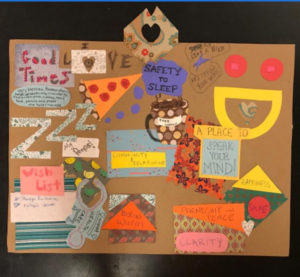Proper 23C, October 13, 2019. The Rev. Pamela L. Werntz
Jeremiah 29:1, 4-7. Seek the welfare of the city where I have sent you into exile, and pray to the Lord on its behalf, for in its welfare you will find your welfare.
2 Timothy 2:8-15. The word of God is not chained.
Luke 17:11-19. Jesus asked, ‘Were not ten made clean? But the other nine, where are they?’
O God of Sacred Story, grant us the strength, the wisdom and the courage to seek always and everywhere after truth, come when it may, and cost what it will.
This sermon is going to include a list-making exercise – and so you might want to have a pen or pencil ready – or take notes on your phone. (Yes, I’m the priest who regularly tells people to use their phones during the liturgy.) You won’t need it for a few minutes, but I want you to be ready. Before that I want to offer some commentary on the readings from our First and Second Testaments. I want to highlight the surprising instructions from God through the prophecy of Jeremiah to the people who were in exile, far from home, captives in Babylon, because maybe some of you are in a similar situation. Jeremiah wrote the Word of God in a letter to them and said: “Plant gardens. Build dwelling places. Seek the welfare of the city where you are, for in its welfare, you will find your welfare.” The Hebrew word for welfare is “shalom.” The same word in Arabic, “salaam,” forms the word Islam. Islam is often translated “submission,” and that is also an essential part of shalom – submission is obedience; obedience is radical listening; radical listening is what God, also known as Love, commands above all else. Listening to love, submitting to love, and well-being are all one. Seek wellbeing in the new and difficult place to which you have arrived against your will. God’s blessing continues even in exile. Contribute to the welfare of the city wherever you are. Be a blessing where you are, even if you are a captive.
Continue reading →


